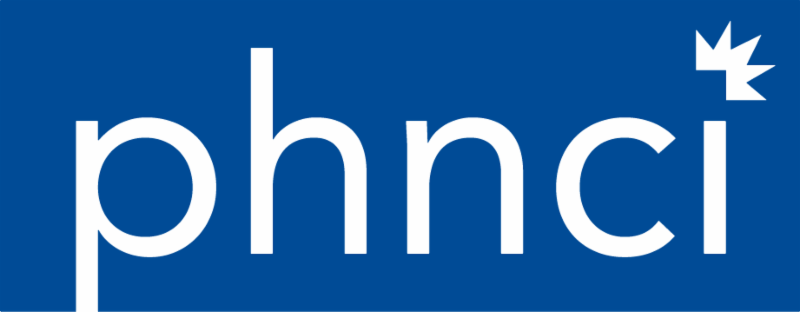|
|
|
Greetings from PHAB:
In our last newsletter, I shared with you my plans to retire at the end of December 2019, and I promised to introduce you to the new PHAB President/CEO in this newsletter. I am so pleased that the PHAB Board of Directors has named Paul Kuehnert, DNP, RN, FAAN, as PHAB's President/CEO beginning in January 2020.
(Read the press release.)
Many of you know Paul in his role as Associate Vice President for Programs at the Robert Wood Johnson Foundation. Some of you also know that he has state and local health department experience as well.
|
|
 |
|
Paul Kuehnert
|
 |
Paul brings a deep personal commitment to public health and a life-long passion for prevention and community well-being. And, he has a heart for what accreditation can mean to public health everywhere! He brings a wealth of experience to the role, and I couldn't be more pleased with this selection. Paul and I will be working together to ensure a seamless transition as PHAB continues our mission to improve the health of communities everywhere. I know that you will also welcome him to the position and will support his work the way that you have supported me.
For my part, I can only say again how full of gratitude I am for all of our collective work over the past 11 years. I remain PHAB's greatest champion and supporter!
From our family to yours....happy holidays and best wishes for a PHAB-u-lous New Year!
|
|
| |
|
|
|
Kaye Bender, PhD, RN, FAAN
|
|
PHAB BOARD OF DIRECTORS: News & Notes
 |
|
 |
Chris Atchison
|
PHAB Board of Directors Tackles Full Agenda in December
PHAB's Board of Directors held its quarterly meeting December 4-5, 2019 in Alexandria, VA. Some of their key decisions included:
- Appointment of Christopher Atchison to the PHAB Board of Directors for a three-year term. A former Director of Iowa's Hygienic Laboratory, he was also Clinical Professor in Health Management and Policy at the University of Iowa College of Public Health. Mr. Atchison held secondary appointments in the College of Nursing and the Public Policy Center, and also served on the Iowa Prevention of Disabilities Policy Council, co-chaired the Partnership for Better Health, and was on the Board of the Child and Family Policy Center and on the Steering Committee for the National Academy of State Health Policy. Mr. Atchision was also Secretary-Treasurer of the Board of Directors for the Association of Public Health Laboratories. He served as Director of the Iowa Department of Public Health (1991-1999) and was the inaugural chair of the Iowa Child Health Insurance Program (S-CHIP). He was vice-chair of Healthy Iowans 2010, the Long Term Care Coordinating Council and was a member of the Governor's Health Care Reform Task Force and the Iowa Empowerment Board. Mr. Atchison was President of the Association of State and Territorial Health Officials (ASTHO) in 1994-1995. In 1998 he received ASTHO's Arthur T. McCormack Award for his contributions to public health practice. He served on the PHAB Accreditation Committee for eight years.
- Reappointment of Dr. Rex Archer to another three-year term on the PHAB Board of Directors.
- Appointment of Dr. Valerie Yeager to the PHAB Research Advisory Council. Dr. Yeager is an Associate Professor in the Department of Health Policy and Management at Indiana University's Richard M. Fairbanks School of Public Health in Indianapolis.
- Reappointment of Dr. Mary Davis (CO) and Dr. Brenda Joly (ME) to the PHAB Research Advisory Council.
- Appointment of Joanne Pearsol to the PHAB Evaluation and Quality Improvement Committee. Ms. Pearsol is Deputy Director of the Ohio Department of Health where she oversees the Office of Performance and Innovation.
- Reappointment of Dr. Julia Heany (MI) and Jaime Dirksen (IL) to the PHAB Evaluation and Quality Improvement Committee.
- Appointment of Claude Jacob to the Accreditation Committee as a Board member.
The Board of Directors also voted to continue the fee structure for accreditation with no increase in the fees for another year. PHAB continues to seek ways to ensure that the accreditation fees are kept as low as possible to manage a national accreditation program. The grants PHAB receives for development and evaluation work allow PHAB to be able to keep the fees as low as possible, while also applying the fees only to the accreditation process support.
|
|
PHAB NEWS, NOTES & UPDATES
Benefits of PHAB Accreditation Reaching More U.S. Communities as Covered Population Continues to Climb
Strong public health departments engaged in effective community partnerships make all communities healthier places to live, work, learn, and play. Striving to fulfill their crucial mission, more and more health departments are placing their work for review against the rigorous national standards set by PHAB. In November, PHAB awarded initial accreditation status to nine local health departments. Moreover, four local health departments achieved national reaccreditation status in November. With these decisions, the benefits of being served by a PHAB-accredited health department now reach 81 percent of the U.S. population. (
Read the press release
.)
National initial accreditation was awarded November 19, 2019 to:
- Canton City Public Health, Canton, Ohio
- Cleveland Department of Public Health, Cleveland, Ohio
- Defiance County General Health District, Defiance, Ohio
- District 4 Public Health, Georgia Department of Health, LaGrange, Georgia
- Ingham County Health Department, Lansing, Michigan
- Portsmouth City Health Department, Portsmouth, Ohio
- San Antonio Metropolitan Health District, San Antonio, Texas
- Stanislaus County Health Services Agency - Public Health Division, Modesto, California
- Trumbull County Combined Health District, Warren, Ohio
National reaccreditation was awarded November 19, 2019 to:
- Columbus Public Health, Columbus, Ohio
- Kane County Health Department, Aurora, Illinois
- Licking County Health Department, Newark, Ohio
- Tulsa Health Department, Tulsa, Oklahoma
Guide to National Public Health Department Initial Accreditation: New and Improved Edition Now Available
PHAB has released a revised
Guide to National Public Health Department Initial Accreditation
(September 2019)
. Both the multijurisdictional application category and the Inactive Status option have been deleted from the Guide. In addition, the Guide no longer includes the requirement for the submission of an Action Plan when a health department is required to complete additional work to achieve accreditation. The Guide has also been revised to include a provision for Approved Archive (pages 19 and 20). These process changes were announced in the last issue of e-PHAB's newsletter. Additionally, editorial changes and small corrections were made throughout the Guide. These changes pertain to only initial accreditation and have no bearing on the
Guide to National Public Health Department Reaccreditation: Process and Requirements
.
The revised Guide may be downloaded from the
PHAB website
or purchased through PHAB's
online store.
If you have any questions about the accreditation process, contact your Accreditation Specialist or Robin Wilcox, PHAB's Chief Program Officer at
[email protected]
.
PHAB Continues Its Work on Version 2.0 of the Standards and Measures
PHAB's work to update the initial and reaccreditation standards and measures (Version 2.0) continues to move forward. The Public Health Workforce Expert Panel met at the PHAB office on November 21, 2019. The panel reviewed the current health department accreditation standards and measures related to public health workforce development capacity, discussed any pertinent changes in public health workforce development and/or support for health departments' work in this area, and recommended potential revisions in the accreditation standards and measures as PHAB prepares Version 2.0.
Participants were able to consider feedback received from the PHWINS work, the workforce development initiatives of the Public Health Foundation, and the National Board of Public Health Examiners. A summary of the expert panel discussion will be available on the Version 2.0 section of PHAB's website in
mid-January.
|
|
| The Public Health Workforce Expert Panel met at PHAB on November 21, 2019. |
PHAB also held an Emergency Preparedness Expert Panel in Decatur, GA, on December 17, 2019. The purpose of that expert panel was to review the current health department accreditation standards and measures related to emergency preparedness capacity, to discuss any pertinent changes in emergency preparedness practice and/or support for health departments' work, and to recommend potential revisions in the accreditation standards and measures as PHAB prepares Version 2.0. Participants were able to consider input from the new (October 2018) Public Health Emergency Preparedness and Response Capabilities, an updated crosswalk of those capabilities with Version 1.5 of PHAB's Accreditation Standards and Measures, and Project Public Health Ready. A summary of the expert panel discussion will be available on the Version 2.0 section of PHAB's website in late January 2020.
|
|
|
Members of the Emergency Preparedness Expert Panel gathered for a group photo during their December 17, 2019 meeting in Decatur, GA.
|
New Value and Impact of Accreditation Paper Coming in January 2020
Since launching the national accreditation program in 2011, PHAB has amassed a significant amount of quantitative and qualitative data that collectively provide insight into the value and impact of public health department accreditation. Although the information has been shared through a variety of media, PHAB has been asked to pull all of that information together in one place. In January 2020, PHAB will release a report that presents a summary of the data gathered to date, along with contextual information to highlight why these findings matter to health departments and the communities they serve. Please stay tuned to PHAB's
website for the announcement when the paper is posted.
Two New Courses Now Available on Bridge Education Portal
 PHAB is pleased to announce that two new courses have been added to
Bridge
, PHAB's new education portal. Using the Readiness Checklists explains how to use the checklists to get your accreditation efforts started and how to assess what you need to do before you apply. In addition, a five-part Documentation for Accreditation Series walks learners through documentation management, including determining evidence for uploading into e-PHAB. Learners can complete just one or all five of the modules based on their learning needs. PHAB is pleased to announce that two new courses have been added to
Bridge
, PHAB's new education portal. Using the Readiness Checklists explains how to use the checklists to get your accreditation efforts started and how to assess what you need to do before you apply. In addition, a five-part Documentation for Accreditation Series walks learners through documentation management, including determining evidence for uploading into e-PHAB. Learners can complete just one or all five of the modules based on their learning needs.
As noted in the October newsletter, all of PHAB's educational products are now available on Bridge with a single sign-on.
If you already have a Bridge account, you can
login directly here
. If you have not yet created a Bridge account,
click here to register
.
Based on how you register, materials will be made available to you based on interest or role. Some materials are limited to specific users, while others are available to anyone. A
user guide
is available to help you with registering and navigating the features of Bridge. This guide will be revised and updated as new content is added.
If you have any questions or issues with Bridge, please email
[email protected]
. See the
Education Center tab
on PHAB's website for more information about Bridge and the online orientation.
Standards and Measures Documentation: Tips for Success
In this column, PHAB staff share tips for successfully demonstrating conformity with various PHAB Standards and Measures. Here, PHAB Chief Program Officer Robin Wilcox discusses initial accreditation Measures 2.1.4 and 2.3.4. The meaning and requirements for these two measures are sometimes confused.
Measure 2.1.4 is "Collaborative work through established governmental and community partnerships on investigations of reportable diseases, disease outbreaks, and environmental health issues." Measure 2.1.4 is a measure under Standard 2.1, "Conduct timely investigations of health problems and environmental health issues."
Measure 2.3.4 is "Collaboration among Tribal, state, and local health departments to build capacity and share resources to address Tribal, state, and local efforts to provide for rapid detection, investigation, and containment/mitigation of public health problems and environmental public health hazards." This measure (2.3.4) is under Standard 2.3, "Ensure access to laboratory and epidemiological/ environmental public health expertise and capacity to investigate and contain/mitigate public health problems and environmental public health hazards."
Both of these measures relate to the health department's capacity to respond to public health problems and environmental public health hazards. Measure 2.1.4 addresses the health department's work on the ground, collaborating with community partners and other local governmental units to ensure that they have the capacity to respond in a coordinated manner. This might mean, for example, the health department working with the department of public works, if the safety of the water supply is suspected of being compromised. It might mean working with the school system if a case of Norovirus is suspected among school children. (Click here to read full article.)
Join PHAB's Site Visitor Team and See the World! Qualified Volunteers Now Being Recruited
 PHAB is issuing a call for more site visitors to conduct peer review for initial accreditation, reaccreditation, Army installation accreditation, and state Vital Records and Health Statistics (VRHS) ? accreditation. Site visitors play a central and pivotal role in PHAB's accreditation model. PHAB offers in-person training in Alexandria 3 to 4 times a year for site visitors who wish to review documentation for initial accreditation of state, local, tribal, or territorial health departments; Army installations; and VRHS Units. PHAB is issuing a call for more site visitors to conduct peer review for initial accreditation, reaccreditation, Army installation accreditation, and state Vital Records and Health Statistics (VRHS) ? accreditation. Site visitors play a central and pivotal role in PHAB's accreditation model. PHAB offers in-person training in Alexandria 3 to 4 times a year for site visitors who wish to review documentation for initial accreditation of state, local, tribal, or territorial health departments; Army installations; and VRHS Units.
As an alternative to in-person training, those interested in reaccreditation peer review should note that PHAB offers two webinars that will prepare individuals to review narratives and other documentation. The reaccreditation webinars are self-study and will be followed by a conference call to review the case study. A reaccreditation site visit does not require travel; it is instead done "virtually" and can be completed in four hours or less. If you are interested in applying to be a site visitor, please visit https://www.e-phab.org/login
or contact PHAB Volunteer Services Manager Jeff Lake at
[email protected],
or (703) 778-4549, ext. 110.
 Moving into Equity for Public Health Moving into Equity for Public Health
Many definitions of health equity exist and common to them is the notion that every person has the opportunity to attain their highest level of health. As health departments increasingly recognize the importance of focusing on health equity as part of their mission, they often struggle with how to get started and make an impact. To further advance the field in these efforts, the Public Health National Center for Innovations (PHNCI), in partnership with the Minnesota Department of Health, created Moving into Equity: The Public Health Journey, a resource for health departments as they continue their journey to become an equity-focused organization, both in awareness and practice. This resource is meant to augment the variety of existing resources in the field, not replace them.
Click here
to read a PHNCI blog about the guide.
How Has the Field Responded to the 2012 Report on Public Health Financing?
In 2012, the Institute of Medicine (IOM), now the National Academies of Sciences, Engineering, and Medicine, published three reports on public and population health specifically focusing on data measurement, law and policy, and funding. These reports laid out concrete recommendations for the field to understand how public health practice has evolved and how to assert its vital role in improving the health and well-being of communities in a post-health reform world.
Given PHNCI's involvement with the foundational public health services (FPHS), born from F
or the Public's Health: Investing in a Healthier Future
(the Finance report), a recent study on whether the recommendations in the report were acted upon and had made an impact in public health practice was commissioned. Specifically, PHNCI was interested in: 1) understanding which of the ten recommendations from the report have been further developed; 2) learning what impact has been made from those developments; and 3) describing successes and challenges to the recommendations.
PHNCI engaged a team of public health finance experts to work with a team of researchers to reflect on progress toward each of the 10 recommendations in the report, including the body of work that PHNCI leads on FPHS.
Click here
to read the report.
PHNCI Education Materials Now Available on Bridge
Three modules on Innovation have been added to Bridge, PHAB's education portal. Foundational Public Health Services (FPHS) Overview explores the newest PHNCI model of the FPHS and walks through the model in a practical way. Design Thinking - An Introduction goes through the ExperiencePoint/IDEO design thinking model from defining the question to testing possible ideas. Connecting the Dots - National Public Health Initiatives compares several national initiatives, including Public Health 3.0, CDC initiatives, and Public Health 2030.
Also on Bridge is the recording of the November 12th webinar An introduction to Innovation & Design Thinking. The webinar introduced the definition of innovation, detailed the design thinking model, and explained key differences between innovation and quality improvement.
Click here
to access Bridge and
click here
to view a Bridge user guide. If you select "I'm interested in PHNCI's work on innovation" when you register, these courses will automatically be recommended for you. Otherwise, they are located under the "Learning Library" tab. More modules on innovation will be added in the coming weeks.
|
QUALITY IMPROVEMENT CORNER

In this installment of Quality Improvement Corner, PHAB Accreditation Specialist April Harris, MPH, CHES, talks about the importance of keeping the fun in QI.
Keeping QI Fun During the Holidays and Throughout the Year
During this season of gatherings and festivities with your colleagues, it's a great time to include quality improvement! As staff come together to celebrate the holidays and a productive year of work, try finding ways to discuss improvement or highlight QI accomplishments with your team.
In this edition of the QI Corner, the Orange County Health Care Agency, accredited in 2016, shares several approaches for keeping QI at the forefront of their health department. David Souleles, Deputy Agency Director for the Public Health Division, is a PHAB Site Visitor and also serves on PHAB's Evaluation and Quality Improvement Committee, which reviews and provides feedback on health department Annual Reports, among other activities. Jane Chai, OCHCA's Public Health Projects Manager, serves as the Accreditation Coordinator and has developed key strategies for keeping staff engaged through communication, activities and training. (Click here to read full article.)
|
|
PARTNER SPOTLIGHT
Rural Health Information Hub Offers New Feature Article Exploring Voluntary Accreditation for Rural Public Health Departments
The Rural Health Information Hub this week posted a new feature article titled It's Possible: Voluntary Accreditation for Rural Public Health Departments. In the article, author Kay Miller Temple provides an in-depth look at how rural health departments can achieve PHAB accreditation.
Despite challenges, many rural health departments have achieved accreditation. As of November 2019, PHAB's website listed over 75 accredited health departments that are in locations that meet a rural designation. Voluntary accreditation is one way the nation's health departments, including rural local health departments, can measure themselves against a universal standard of excellence. With national standards now available for voluntary accreditation, rural public health departments need to determine the feasibility of that activity for their organization.
Two additional stories are noted under this story's main title:
Registration Now Open for the 11th Annual Tribal Public Health Summit
 The National Indian Health Board invites you to register for the National Tribal Public Health Summit (TPHS). TPHS is a premiere Indian public health event that attracts over 500 Tribal public health professionals, elected leaders, advocates, researchers, and community-based service providers. This year's Summit will feature dynamic national speakers, interactive workshops and roundtable discussions, a welcome reception, a morning fitness event, as well as the presentation of the 2020 Native Public Health Innovation awards. The National Indian Health Board invites you to register for the National Tribal Public Health Summit (TPHS). TPHS is a premiere Indian public health event that attracts over 500 Tribal public health professionals, elected leaders, advocates, researchers, and community-based service providers. This year's Summit will feature dynamic national speakers, interactive workshops and roundtable discussions, a welcome reception, a morning fitness event, as well as the presentation of the 2020 Native Public Health Innovation awards.
NACCHO Model Practices Application Portal Now Open
The
application portal
for NACCHO's 2020 Model Practices Program is now open through December 30. NACCHO's Model Practices Program nationally honors and recognizes outstanding local public health practice and shares the outstanding practices through the Model Practices Database. In addition to being incredibly important for the field, NACCHO's Government Affairs team uses model practices to help highlight the important work of its members when NACCHO advocates on their behalf on the Hill or with the administration. Model Practices are awarded to local health departments across the country for implementing programs that demonstrate exemplary and replicable outcomes in response to an identified public health need. Programs may also earn a Promising Practices distinction, which highlights exciting approaches and strategies to local public health issues that are on track to becoming Model Practices.
All local health departments and NACCHO affiliate members are eligible to submit practices. To be eligible for the 2020 Model Practices Awards, online submissions must be received by 3:59 PM PST on December 30, 2019. If you have any questions concerning the Model Practices program, please e-mail [email protected] and a member of the Model Practices team will get back with you.
New Blog! ASTHO Experts Offer Six Tips for Sustaining Accreditation
Initial public health agency accreditation demonstrates that a state, Tribal, local or territorial public health agency has the capacity to provide the
10 Essential Public Health Services, develop and manage an effective health department, and maintain strong communications with the governing entity. Reaccreditation builds upon a health department's initial accreditation efforts. Reaccreditation focuses on how health departments maintain capacity, ensure accountability, and support continuous quality improvement so that they continue to evolve, improve, and advance.
How are public health agencies in various stages of the PHAB journey approaching sustainability and reaccreditation? Working with public health agencies to sustain success and momentum from accreditation and prepare for reaccreditation, Joanne Pearsol, Deputy Director of the Ohio Department of Health, and Susan Ramsey, former Director of Washington State Department of Health's Office of Performance and Accountability, have observed six key strategies for success,
which they share in this December 5, 2019
ASTHO Experts Blog.
|
|
PHAB STAFF CORNER
PHAB Welcomes Dupé Akinuli to the PHAB Team
PHAB is pleased to announce that Dupé Akinuli joined the PHAB team on December 2, 2019. In her new role as Systems Analyst, Dupé will oversee the information systems that support PHAB's core operations.
Prior to joining PHAB, Dupé worked in the field of higher education, where she assisted with student information systems. She holds a Master of Science degree in Management from the University of Maryland University College, and a Bachelor's degree in Individual Studies.
PHAB Honors Longtime Employees Mark Paepcke and Travis Parker Lee for Ten Years of Service to PHAB
|
|
 |
|
Kaye Bender, center, presents certificates of appreciation to Mark Paepcke, left, and Travis Parker Lee.
|
 |
PHAB opened its doors a little over 10 years ago with just a handful of employees, among them Mark Paepcke and Travis Parker Lee. In December, the two were honored for a decade of outstanding service to the organization.
Mark Paepcke, MBA, is the Chief Administrative Officer at PHAB, where he oversees and manages all of PHAB's finance and accounting activities, as well as information technology and other systems, and human resources functions. Prior to joining PHAB in 2009, Mark held various executive-level positions in technology and third party disability management.
Travis Parker Lee is a Program Specialist at PHAB, where he provides programmatic support to the Public Health National Center for Innovations. Prior to joining PHAB in 2009, Travis served as the Program Assistant for Accreditation and Quality Improvement at the National Association of County and City Health Officials (NACCHO).
PHAB extends its appreciation to Mark and Travis for their longtime service and congratulates them on achieving this milestone.
PHAB Accreditation Specialist Chelsey Saari Launches Dissertation Research on the Experiences of Small, PHAB-Accredited Health Departments
|
|
 |
|
Chelsey Saari
|
 |
December has been an exciting month for PHAB Accreditation Specialist Chelsey Saari, MPH. A doctoral student in the University of Illinois at Chicago's Doctorate in Public Health Leadership (DrPH) program, Chelsey recently presented and successfully defended her dissertation research proposal, currently titled The Experience of PHAB Accreditation Among Small Accredited Local Health Departments: An Exploration of Decision-Making Factors, Processes, and Perceived Benefits and Outcomes.
Over the next 12-18 months, Chelsey will be conducting a qualitative case study to document and explore the experiences of a sample of small PHAB-accredited health departments. Her goal is to identify what most influenced and facilitated the success of these departments in the accreditation process and to identify how PHAB and other partner organizations can support small health departments in their decision to pursue and journey toward becoming PHAB-accredited. Congratulations Chelsey!
|

Happy Holidays and Our Best Wishes for a Happy and Healthy New Year from the PHAB and PHNCI Teams!
|
|
|
Thank you to all of our loyal supporters for your help in our collective work to improve the health of communities everywhere!
|
Front row from left: Kaye Bender, Chelsey Saari, Nicole Pettenati, April Harris, Catrina Kerrison, and Teddi Nicolaus. Middle row from left: Reena Chudgar, Jeff Lake, Brittan Williams, Jessica Kronstadt, Robin Wilcox, Jennifer Jimenez, and Bulbul Bhattacharya. Back frow from left: Genny Lush, Mark Paepcke, Travis Parker Lee, Jessica Solomon Fisher, David Stone, Triona Gateley Neff, Marita Chilton and Dupé Akinuli.
PHAB's E-Newsletter is distributed on a periodic basis to more than 6,500 subscribers. The PHAB E-Newsletter is the best way to stay abreast of important news and updates related to PHAB's national accreditation program, as well as to learn about the activities, technical assistance, and resources available through its partner organizations.
Click here to subscribe.
|
|
Public Health Accreditation Board
1600 Duke Street
Suite 200
Alexandria, VA 22314
Phone: 703-778-4549
Fax: 703-778-4556
For more information, visit www.phaboard.org
|
|
|
| |
|